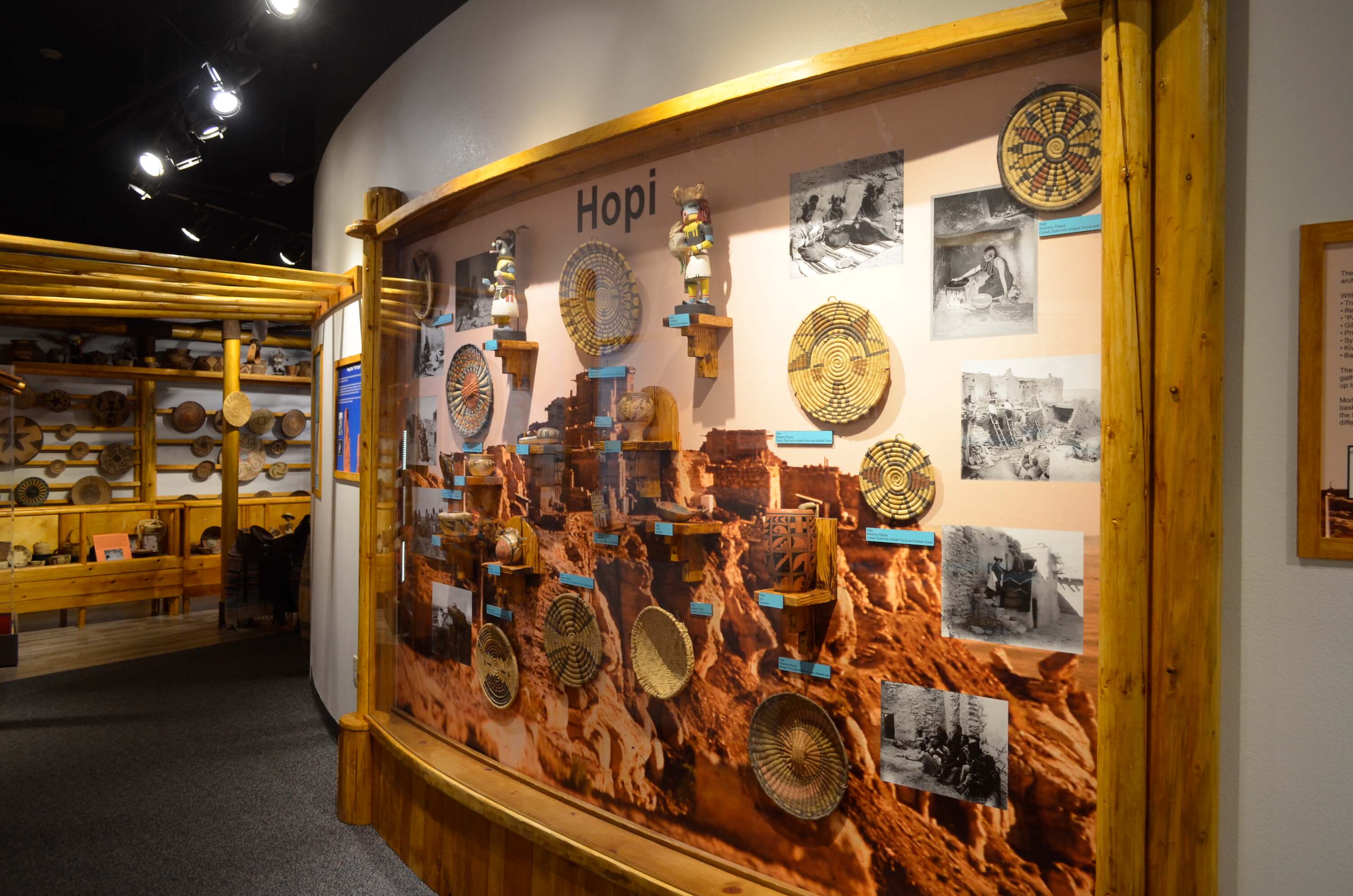 Exploring the Native cultures of Western North America—as well as environmental sustainability
Exploring the Native cultures of Western North America—as well as environmental sustainability
By Michelle Glicksman
Arizona Natural History Museum recently opened a new permanent exhibit, Native Cultures of Western North America. In conducting research for it, Melanie Deer, the collections manager, anthropology, found several links to environmental sustainability which she wove into the display.
The exhibit itself “explores the lifeways of dozens of Native American peoples from the Mississippi River to the Pacific Ocean, from Alaska to Mexico. Their stories are told through objects of material culture and works of art.”
“Everything is grouped culturally,” Deer says. “And we have a representation of those cultures through their items.”
According to Deer, some of the items on display include bead work, baskets, ceramics, katsinas, textiles, leatherwork, a bone harpoon, an ivory cribbage board, and many baskets.
“We were donated over 500 baskets from one collection,” she says, though she notes that not all are on display.
Historic photographs show cultural contexts and uses in all areas.
Deer approaches some of the displays with an eco-conscious angle. For example, a display showcases baskets from the Hopi.
“For cultural reasons, they only harvested wild plants to make certain baskets, and only harvested those during certain times of the year due to ceremonies and such,” she says. “Because of the timing, even though they may have been able to grow those plants locally, they would have to travel to find them wildly grown to use. Sometimes they would have to travel up to 400 miles for the material!
“So, one thing I point out in the exhibit is, is it the fact that it’s wild plants more important than the basket, or is the basket more important than the wild plants? And, that’s something I can’t answer. It’s something the Hopi can, but I can get people to think about it and how it relates to them and thing in their life.”
Another example Deer shares from her research is the integration of non-native plants.
“One thing we discovered when taking with a tribal representative of a local tribe… is that when they were building a government office, the landscapers brought in a plant from South America, even there are locally varieties here. The landscaper just brought it in, even though there were local ones. The impact was pretty interesting—it creates a cascade effect of problems. [The tribal representative] said they’ve actually seen the baskets that are being made now, and they’ve seen the quality of the plants going down.
“When you have local species of plants mixing with imported species, you can actually get toxic plants. They can be no longer edible. So, the species are close enough that they can breed together, but then it turns out that they are either inedible or toxic. This affects not only the edible function, but also the baskets the plants are being used to make.”
Though briefly, Deer mentions examples such as these in the exhibit. She also mentions how baskets and the materials they were made from changed through time, and how trade impacted the tribes and regions, as well.
“I like that you can compare and contrast all of these cultures,” she says. “I think it’s kind of beautiful to look at how people have used their surrounds throughout time and still do, and how they are so different, yet so similar.”
Arizona Natural History Museum is located at 53 N. Macdonald, Mesa, AZ 85201, and is open Tues.-Sun. For more information, call 480.644.2230 or visit arizonamuseumofnaturalhistory.org.
Photos courtesy Arizona Natural History Museum







